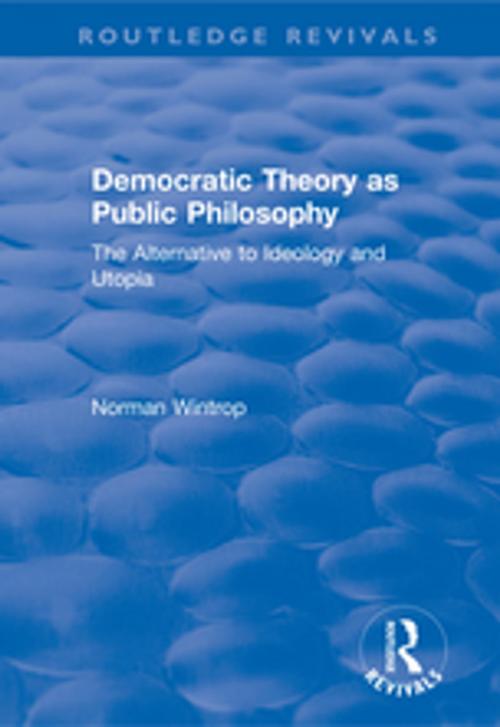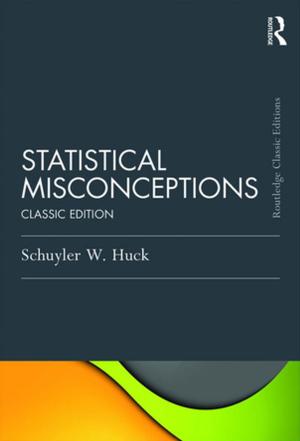Democratic Theory as Public Philosophy: The Alternative to Ideology and Utopia
The Alternative to Ideology and Utopia
Nonfiction, Social & Cultural Studies, Social Science| Author: | Norman Wintrop | ISBN: | 9781351774727 |
| Publisher: | Taylor and Francis | Publication: | November 1, 2017 |
| Imprint: | Routledge | Language: | English |
| Author: | Norman Wintrop |
| ISBN: | 9781351774727 |
| Publisher: | Taylor and Francis |
| Publication: | November 1, 2017 |
| Imprint: | Routledge |
| Language: | English |
This title was first published in 2000: This text contends that there are pronounced ideological (apologetic) and utopian biases in how democracy is now viewed by most academic writers, politicians and journalists. Ideological biases result from democracy being seen in formal and procedural ways as parliaments, free elections and competitive parties and pressure groups - irrespective of the standards which guide or the effects produced by these procedures. Utopian democrats reject this narrow empiricism for normative approaches and, instead of realistic norms, they offer impractical, perfectionist and counter-productive standards and goals. As the alternative to ideology and utopia, the author builds upon and draws conclusions from a realistic and normative, public philosophic tradition of writing on democratic politics. This tradition is explained and illustrated by critical responses to Walter Lippman's conception of public philosophy, Lippman's activity as a public philosopher, and the work of major democratic theorists from Alexis de Tocqueville to Giovanni Sartori.
This title was first published in 2000: This text contends that there are pronounced ideological (apologetic) and utopian biases in how democracy is now viewed by most academic writers, politicians and journalists. Ideological biases result from democracy being seen in formal and procedural ways as parliaments, free elections and competitive parties and pressure groups - irrespective of the standards which guide or the effects produced by these procedures. Utopian democrats reject this narrow empiricism for normative approaches and, instead of realistic norms, they offer impractical, perfectionist and counter-productive standards and goals. As the alternative to ideology and utopia, the author builds upon and draws conclusions from a realistic and normative, public philosophic tradition of writing on democratic politics. This tradition is explained and illustrated by critical responses to Walter Lippman's conception of public philosophy, Lippman's activity as a public philosopher, and the work of major democratic theorists from Alexis de Tocqueville to Giovanni Sartori.















